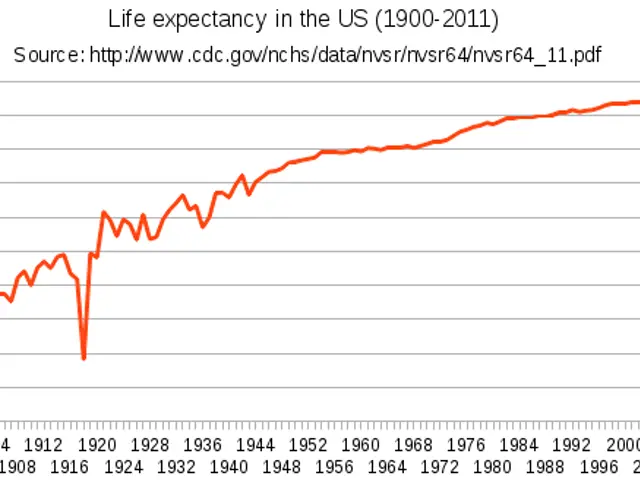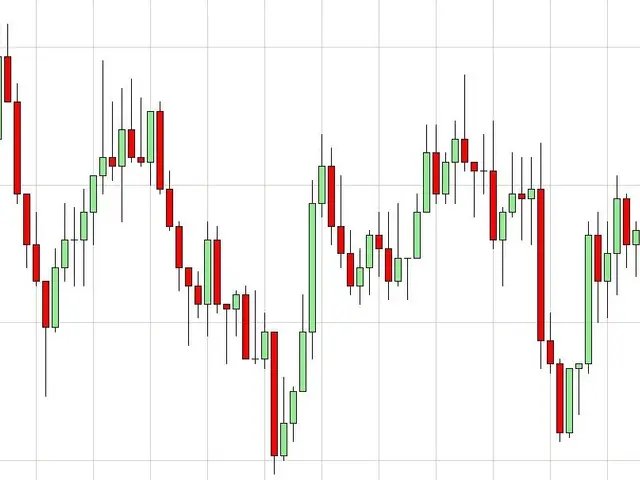Here's the Tenuous Tango of Wacker Chemie and the Buckin' Bourse
By Joachim Herr, Munich
Captivated by Traditions' Enchantment
The dicey dance of U.S. trade policy has taken a toll on the stock of Wacker Chemie, causing a hefty 30% dive in price from mid-March to early April - landing at its weakest point in five years. Though there was a brief recovery of around one-fifth, the report unveiled on April 30th put an end to the upswing. The Munich-based company's operating result failed to meet the average expectations of analysts, and uncertainty still lingers in the air.
The board of directors reaffirmed the business outlook given in mid-March for this year. However, the potential repercussions of trade conflicts on the global economy and Wacker Chemie have yet to be factored into the forecast. Nonetheless, the company doesn't find itself in a drastically different situation than several others in the industry. Analysts, such as those from Baader Bank, express concerns that the business might not recover enough in the current quarter for Wacker Chemie to achieve its annual targets.
The market's doubts are mounting
At least, the group aims for revenue growth of 7 to 12% for the entire year. Sales are forecasted to increase in all regions and business segments, with significantly higher sales volumes of chemical specialties and polysilicon for the solar and semiconductor industry overshadowing the lower prices[1]. In the first three months, revenue remained stagnant at 1.48 billion euros, a disclosure made by the board[1]. Yet, it seems the doubts in the market are intensifying.
This is also due to the fact that the operating profit (EBITDA) plummeted by 26% to 127 million euros and missed predictions[1]. Wacker Chemie had mentioned 135 million euros as the average of the estimates. For the whole year, the board anticipates a fairly broad range of 700 million to 900 million euros for EBITDA[1]. Last year, EBITDA declined to 763 million euros. After the figures for the first quarter, Jefferies and Deutsche Bank reduced their EBITDA estimates for the year by 14% and lowered their price targets to 81 euros and 74 euros, respectively. Berenberg chopped it from 85 to 75 euros.
Slashed profit estimates
Jefferies primarily attributes the reduced earnings estimate to an oversupply in the polysilicon market and its expectation for continued bloat for a considerable amount of time[1]. However, it's not just this business that clouding the prospects for Wacker Chemie. Berenberg reduced its estimates for earnings per share by more than 25% to 2027, taking into account the effects of the trade war[1].
Berenberg continues to endorse holding the stock. DZ Bank, which proposes buying like Jefferies, left its price target of 81 euros unchanged. The analysts in Frankfurt emphasize the positive elements of the quarterly report: Despite an unfavorable market environment, the segments of silicones and polysilicon for the semiconductor business had a promising kick-off to the year. DZ Bank sees the highest upside potential in the polysilicon business and polymers[1].
Polymer Binders and Additives are used in various industrial sectors, such as construction for adhesives and building materials. The most extensive product range of Wacker Chemie is silicones, found in various consumer products, such as smartphones, electric car motors, high-voltage cables, and batteries[1]. The polysilicon business for solar-related applications is struggling due to Chinese suppliers flooding the market with their excess capacities and potential anti-dumping duties on solar products by the U.S.[1].
Analysts at Deutsche Bank underscore that Wacker is the largest producer of polysilicon outside of China and hence is strongly influenced by trade policy[1]. In Q1 2025, Wacker Chemie's polysilicon revenue dropped by 18%, and Ebitda by 32%. According to the company, this is primarily due to a lower sale of solar silicon[1]. In contrast, the business with high-purity polysilicon for semiconductor applications has had a positive progression. Last year, the segment's revenue and operating profit also plummeted by around 40% owing to lower prices for solar applications[1].
Shift towards Semiconductors
Due to the bleak solar silicon market, Wacker Chemie is focusing on the semiconductor sector. The revenue split between the two customer groups is approaching a 50:50 balance. However, the board does not contemplate focusing exclusively on the chip market, as it isn't large enough[1]. CEO Christian Hartel states that the company still derives income from solar silicon, and maintaining both customer bases offers a better utilization of production facilities than solely serving one[1].
An essential piece of the board's strategy is also the expansion of the business with specialties in the silicones sector. These custom-developed products command higher-value creation and higher margins[1]. These unique products, therefore, play a crucial role in increasing profitability - and consequently, shareholder enthusiasm on the stock exchange.
In short, Wacker Chemie is wrestling with significant challenges due to trade disputes and market weaknesses, primarily in the polysilicon market. However, the company remains resilient, adamantly focusing on long-term growth through its diverse portfolio and strategic initiatives in sustainability. The company is accelerating its sustainability roadmap, aiming to reduce emissions, improve circular material flows, and expand green energy sourcing. This strategic stance aspires to support long-term growth and innovation. Despite the daunting market conditions, Wacker Chemie reaffirmed its full-year 2025 guidance, stressing its financial strength with a net cash position of €424 million and robust financials[1].
Investors may find it prudent to reconsider their approach to investing in Wacker Chemie's stock, given the ongoing challenges in the finance sector, particularly the struggling polysilicon market. The slashed profit estimates and doubts mounting in the market could significantly impact Wacker Chemie's annual targets.




